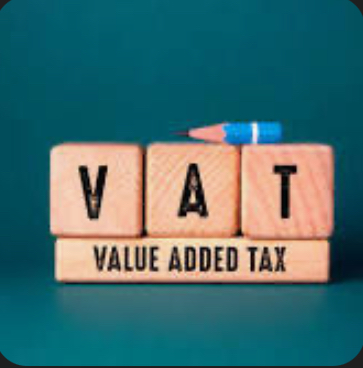
No Excavator Was Registered Under Akufo Addo
Oct 14, 2025
by Ekow Benyah Oct 06, 2025

October 6, 2025
Ghana's economy is showing robust signs of recovery as domestic Value Added Tax (VAT) collections jumped by 33.6 percent in the first five months of 2025, according to the Bank of Ghana's July Monetary Policy Report released today.
The report reveals that domestic VAT collections reached GH¢8.31 billion between January and May 2025, a significant increase from the GH¢6.22 billion recorded during the same period in 2024. This impressive growth reflects both stronger consumer demand and improved tax compliance across the country.
Complementing the VAT performance, retail sales demonstrated even more impressive growth, surging by 35.7 percent cumulatively over the first five months of the year. This upward trend highlights growing household spending and a notable recovery in private consumption.
Breaking down the May 2025 figures, retail sales rose by 38.6 percent year-on-year to GH¢277.62 million, compared to GH¢200.27 million in May 2024. On a month-on-month basis, retail activity improved by 4.6 percent, climbing from GH¢265.46 million in April to GH¢277.62 million in May.
Domestic VAT collections in May alone posted a robust 30.1 percent year-on-year increase, reaching GH¢1.77 billion. Analysts attribute this strong performance to enhanced economic activity, stronger consumer confidence, and improved tax administration systems.
According to the Bank of Ghana report, the uptick in consumer spending reflects a gradual rebound in domestic demand, supported by relatively stable prices and moderate growth in disposable incomes. The simultaneous rise in both VAT collections and retail sales suggests that Ghana's economy is experiencing a meaningful recovery phase.
"The data shows that households are regaining confidence in the economy and are willing to spend more," said one economic analyst. "This is a positive sign for overall economic health and fiscal revenue generation."
Despite the encouraging figures, market watchers have cautioned that sustaining this positive momentum will require continued effort on multiple fronts. Key concerns include:
Economists emphasize that while the current trend is promising, policymakers must remain vigilant to ensure these gains are not reversed by macroeconomic instability or policy missteps.
The strong performance in both retail sales and VAT collections provides several positive signals:
As Ghana continues its economic recovery trajectory, the sustainability of these gains will depend on the government's ability to maintain macroeconomic stability while implementing policies that support household income growth and business expansion.
The Bank of Ghana's monetary policy decisions in the coming months will be crucial in balancing the need to support economic growth while keeping inflation in check and maintaining the stability of the cedi.
For businesses, the strong retail sales figures present opportunities for expansion and investment, while the improved VAT compliance suggests a more predictable revenue environment for government planning.

Oct 14, 2025

Feb 15, 2025

Feb 28, 2025

Apr 15, 2025

Jan 26, 2026

Sep 11, 2025

Feb 17, 2025

Oct 06, 2025